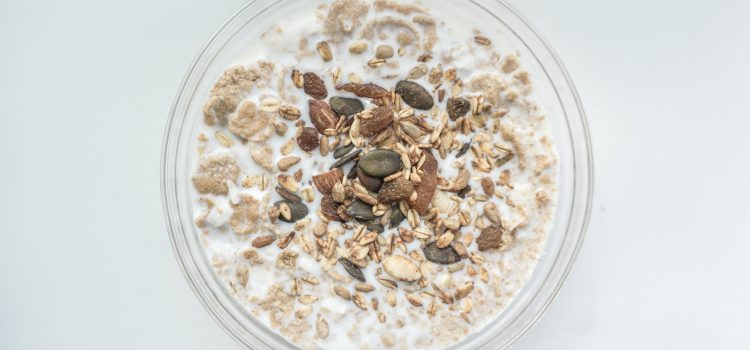
Breakfast is often referred to as the most important meal of the day, and for good reason. A well-balanced breakfast provides the necessary fuel to kick-start our metabolism, improve cognitive function, and maintain optimal energy levels throughout the day. However, not all breakfasts are created equal when it comes to nutrition. To truly unlock the secrets of the healthiest breakfast, we need to focus on three key components that make it a nutrition powerhouse.
- Protein-Packed Start:
Protein is an essential nutrient that plays a crucial role in building and repairing tissues, supporting a healthy immune system, and promoting satiety. Including a good source of protein in your breakfast is essential for maintaining balanced blood sugar levels and preventing mid-morning energy crashes.
One excellent protein option for breakfast is eggs. Packed with high-quality protein, essential amino acids, and vital nutrients like vitamin B12 and choline, eggs provide a complete nutritional profile. A study published in the International Journal of Obesity found that people who consumed eggs for breakfast experienced increased feelings of fullness and reduced calorie intake throughout the day, leading to better weight management.
Other protein-rich options include Greek yogurt, cottage cheese, nut butter, or a variety of plant-based proteins such as tofu, tempeh, or chickpeas. These options not only provide protein but also offer a range of essential nutrients, including calcium, healthy fats, and fiber.
- Wholesome Carbohydrates:
Carbohydrates are the primary source of energy for our body and brain. However, not all carbohydrates are created equal. Choosing wholesome, complex carbohydrates over refined and processed options is crucial for a nutritious breakfast.
Whole grains such as oats, quinoa, or whole wheat bread are excellent choices. They are packed with fiber, which aids digestion, helps regulate blood sugar levels, and promotes a feeling of fullness. Additionally, these grains provide important nutrients like vitamins, minerals, and antioxidants.
Incorporating fruits and vegetables into your breakfast further enhances its nutritional value. Fruits offer natural sweetness and provide essential vitamins, minerals, and antioxidants. Adding sliced berries to your oatmeal or a side of fresh fruit to your plate can elevate the nutrient content while making your breakfast more delicious.
- Healthy Fats:
Including healthy fats in your breakfast is crucial for overall well-being. Healthy fats provide essential fatty acids that support brain health, protect organs, and aid in nutrient absorption. They also contribute to a feeling of satiety and help stabilize blood sugar levels.
Avocados are an excellent source of healthy fats. Their creamy texture and mild flavor make them a versatile addition to breakfast. Spread avocado on whole-grain toast or incorporate it into a smoothie to add richness and nutritional value.
Nuts and seeds, such as almonds, walnuts, chia seeds, or flaxseeds, are other excellent sources of healthy fats. Sprinkle them on your yogurt, oatmeal, or blend them into a smoothie for an added nutritional boost.
Conclusion:
Building a breakfast with these three key components – protein, wholesome carbohydrates, and healthy fats – is a surefire way to unlock the secrets of a nutrition powerhouse. A protein-packed start, including sources like eggs or Greek yogurt, provides essential amino acids and helps maintain satiety. Incorporating wholesome carbohydrates such as whole grains, fruits, and vegetables provides energy, fiber, and essential nutrients. Finally, adding healthy fats from sources like avocados, nuts, and seeds enhances nutrient absorption and supports overall well-being.
By consciously choosing nutrient-dense options for breakfast, we can set ourselves up for a productive day filled with sustained energy and optimal health. So, tomorrow morning, make sure to create a breakfast that nourishes your body and mind, and experience the benefits of unlocking the secrets of the healthiest breakfast.










